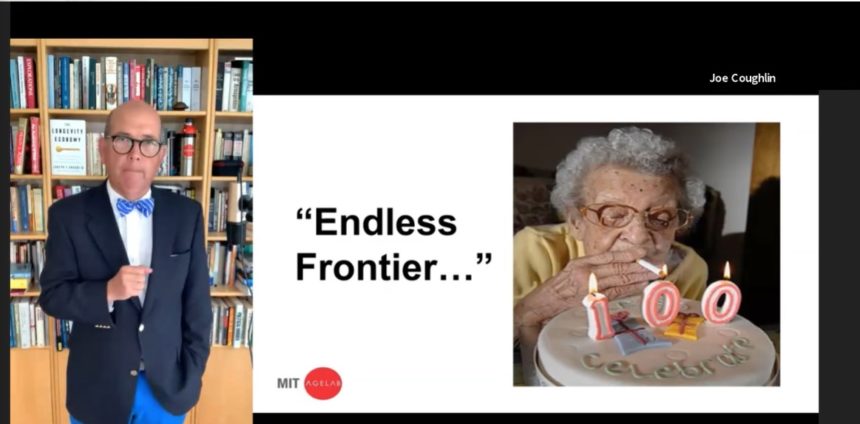
Even before the pandemic, the senior living model — aging within four walls within a property line — was not as attractive as it once was, according to Joseph Coughlin, Ph.D., founder and director of the MIT AgeLab. The new generation of older adults is looking for experiences, he said.
Coughlin gave a keynote address about the effects of the pandemic on technology on Tuesday during the LeadingAge Center for Aging Services Technologies 2021 Collaborative Care & Health IT Innovations Summit.
“Technology and products are as much what they say about you as what they do for you,” he said, adding that device manufacturers seem to believe old age is about checking medications, blood pressure and nutrition.
But health is not just about chronic conditions and numbers, Coughlin said; it’s also about what it can do to improve quality of life. The new endless frontier of technology, he added, is about friends, fun and function.
“I don’t just want to live longer; I want to live better,” Coughlin said. “There is more need to focus on improving my function, connecting me with friends and fun, and making it fashionable.”
MIT’s AgeLab, for example, is working on an integrative device that envisions the home as a platform, not simply a place to live — monitoring, managing and motivating where someone is in his or her residence, how active he or she is and whether he or she is performing certain activities. Other companies are using virtual reality to take senior living residents on virtual trips around the world, he pointed out.
The pandemic, Coughlin said, did a “brilliant job” of tying all of these devices and technology together with the on-demand economy, whether it’s transportation, food delivery or home repairs.
“This is the new acceleration of a lifestyle that is, essentially, a virtual assisted living in your home, or a virtual caregiver when you need to reach with high tech in lieu of high touch,” Coughlin said. “Technology should not just be about my condition, but how happy you can make me and keep me engaged.”
Pandemic as propellant
The pandemic served as a propellant, accelerating technology and related services at least five to seven years faster than planned, he said. In the process, it changed perceptions and attitudes about technology, particularly among older adults.
The value proposition now has been raised high enough for older adults to get past bad design or expense to give smart devices, tablets, cameras and other technology a try, Coughlin said.
“Across the generations, there is greater trust in technology, comfort with using it and downright interest,” he said.
But the pandemic also created a new technology generation gap, Coughlin said. Only 4% of older adults actually buy technology geared toward addressing issues of aging, and only 35% of people 75 and older consider themselves “old.”
See additional coverage of the Collaborative Care & Health IT Innovations Summit from McKnight’s Home Care.


